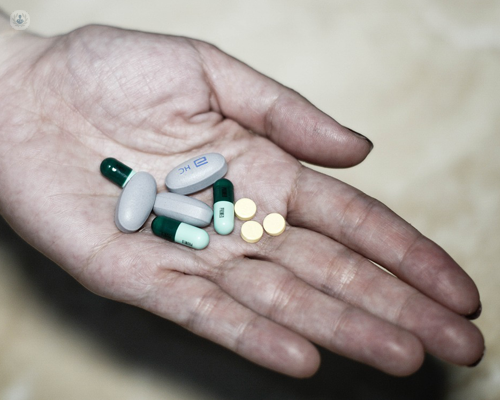The different kinds of medication and treatments available for high cholesterol
Escrito por:High cholesterol, particularly elevated low-density lipoprotein (LDL) cholesterol, is a significant risk factor for cardiovascular diseases such as heart attack and stroke. Managing cholesterol levels effectively is crucial, and there are various medications available to reduce cholesterol and maintain heart health, as well as lifestyle modifications.

What are the main classes of drugs for high cholesterol?
Several medications are designed to target high cholesterol levels, each working in different ways to lower LDL cholesterol, raise high-density lipoprotein (HDL) cholesterol, or reduce triglycerides:
1. Statins
The medication that is most commonly prescribed to lower LDL cholesterol. They inhibit an enzyme in the liver, and this enzyme is responsible for producing cholesterol. Examples include atorvastatin, simvastatin and rosuvastatin. Statins are highly effective and also help reduce inflammation in the arteries, further lowering cardiovascular risk.
2. Ezetimibe
This medication blocks the absorption of cholesterol in the small intestine, reducing the amount of cholesterol entering the bloodstream. It is often used in combination with statins for enhanced LDL cholesterol reduction.
3. PCSK9 inhibitors
These injectable drugs, such as evolocumab and alirocumab, are monoclonal antibodies that improve the liver's ability to remove LDL cholesterol from the blood. PCSK9 inhibitors are particularly beneficial for people who cannot tolerate statins or have familial hypercholesterolemia, a genetic condition causing extremely high cholesterol.
4. Bile acid sequestrants
Drugs like cholestyramine and colesevelam bind to bile acids in the digestive system, which forces the body to use more cholesterol to produce bile acids, thereby lowering blood cholesterol levels.
5. Fibrates
Fibrates, such as fenofibrate and gemfibrozil, primarily target high triglyceride levels and can modestly increase HDL cholesterol. They are often used alongside other treatments for comprehensive lipid management.
6. Omega-3 fatty acids
Prescription omega-3 fatty acid medications, like icosapent ethyl, help reduce triglycerides. These are often recommended for people with very high triglyceride levels.
7. Niacin (Vitamin B3)
This can raise HDL cholesterol. It also has the ability to lower LDL cholesterol and triglycerides. However, due to potential side effects like flushing and liver toxicity, it is less commonly used today.
8. Bempedoic acid
This is a newer oral medication that works similarly to statins but has fewer muscle-related side effects, making it an alternative for patients who cannot tolerate statins.
What non-drug treatments are effective?
While medications play a key role, lifestyle changes are foundational in managing cholesterol:
- Diet: Reducing saturated and trans fats, and increasing fibre-rich foods like oats, fruits, and vegetables, can significantly lower LDL cholesterol.
- Exercise: Regular physical activity raises HDL cholesterol and lowers LDL cholesterol and triglycerides.
- Weight management: Achieving and maintaining a healthy weight helps improve cholesterol levels.
- Avoiding smoking and excess alcohol: These lifestyle choices support overall cardiovascular health.
How is treatment tailored to individual needs?
Treatment plans are highly personalised and depend on factors such as baseline cholesterol levels, overall cardiovascular risk, and tolerance to medications. For individuals with high-risk conditions like diabetes or a history of heart attack, aggressive LDL cholesterol reduction using a combination of medications is often recommended.
Regular monitoring of cholesterol levels and potential side effects ensures that treatment remains effective and safe over the long term. By combining medication and lifestyle adjustments, most individuals can successfully manage their cholesterol levels and reduce their risk of heart disease.


